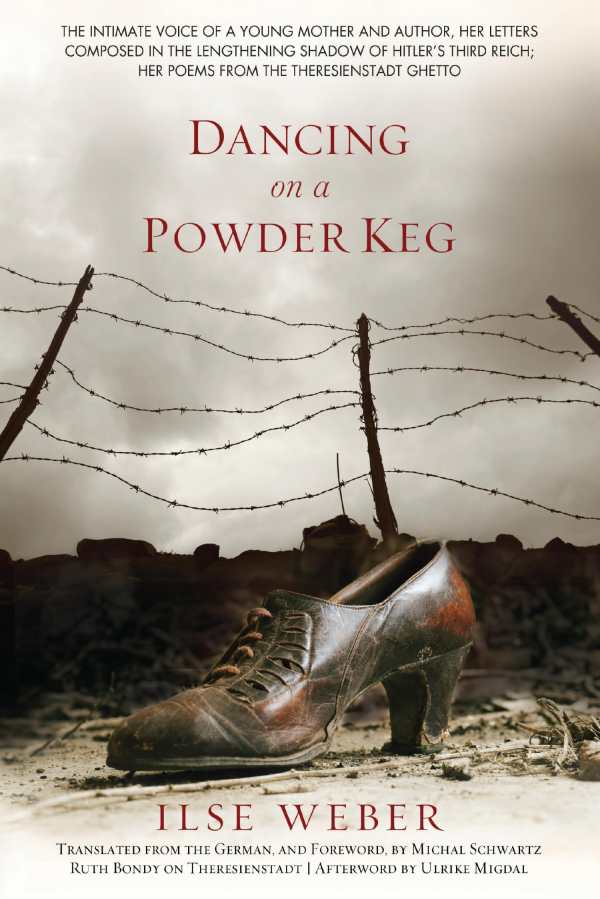Dancing on a Powder Keg
The Intimate Voice of a Young Mother and Author, Her Letters Composed in The Lengthening Shadow of Hitler's Third Reich, Her Poems from the Theresienstadt Ghetto
This sobering, respectful collection brings a haunting legacy out of the viciousness of the war.
Dancing on a Powder Keg elucidates one Jewish woman’s experience in Czechoslovakia during the Holocaust. Translated from the German by Michal Schwartz, Ilse Weber’s brave reflections reveal the effort to keep artistic practice alive while raising young children in dark times. Historic, unsettling, and beautifully composed, these writings add a crucial note to existing scholarship on the Holocaust.
A writer for radio, lyricist, children’s book author, and later a nurse on the children’s ward at the Theresienstadt concentration camp (which was also called the Theresienstadt Ghetto), Weber turns everyday events into lively descriptions through letters that span 1933–1944. The majority are written to Weber’s friend in England, Lilian; Lilian’s mother, Gertrude, who sheltered Weber’s eldest son in Sweden during the war; and to her son. Germany’s growing threat is drawn through mentions of scarce finances, the plights of friends, pogroms, and divisions among the Czech people, and all while Weber persisted with household duties. Affectionate portraits of her children rapidly give way to accounts of anti-Semitism and fear. In the absence of Lilian’s replies, these letters become a personal record of losing freedom and keeping faith. Questions linger unanswered. They build with urgency, turn briefer and rarer, then suddenly cease.
A useful note by Ruth Bondy on Theresienstadt and an afterword by Ulrike Migdal provide background. Biographical details and the story of how Weber’s writings were preserved add necessary context. The account of her surviving son, Hanuš, is particularly fine. It balances between the tragedy of a young son who was separated from his family—and who, at the time, remained unaware of their ordeal in the camps—and the adult who later learned the truth. It’s here, in the unspoken weight of such knowledge, that the full impact of Weber’s death comes to rest.
Weber was known for her compassion toward children in the camp. Her lullabies and poetry portray their longing with staunch intelligence. Spare images depict the pain of imprisonment and horror of transports even as they hope for an end to suffering. This sobering, respectful collection brings a haunting legacy out of the viciousness of the war.
Reviewed by
Karen Rigby
Disclosure: This article is not an endorsement, but a review. The publisher of this book provided free copies of the book to have their book reviewed by a professional reviewer. No fee was paid by the publisher for this review. Foreword Reviews only recommends books that we love. Foreword Magazine, Inc. is disclosing this in accordance with the Federal Trade Commission’s 16 CFR, Part 255.


